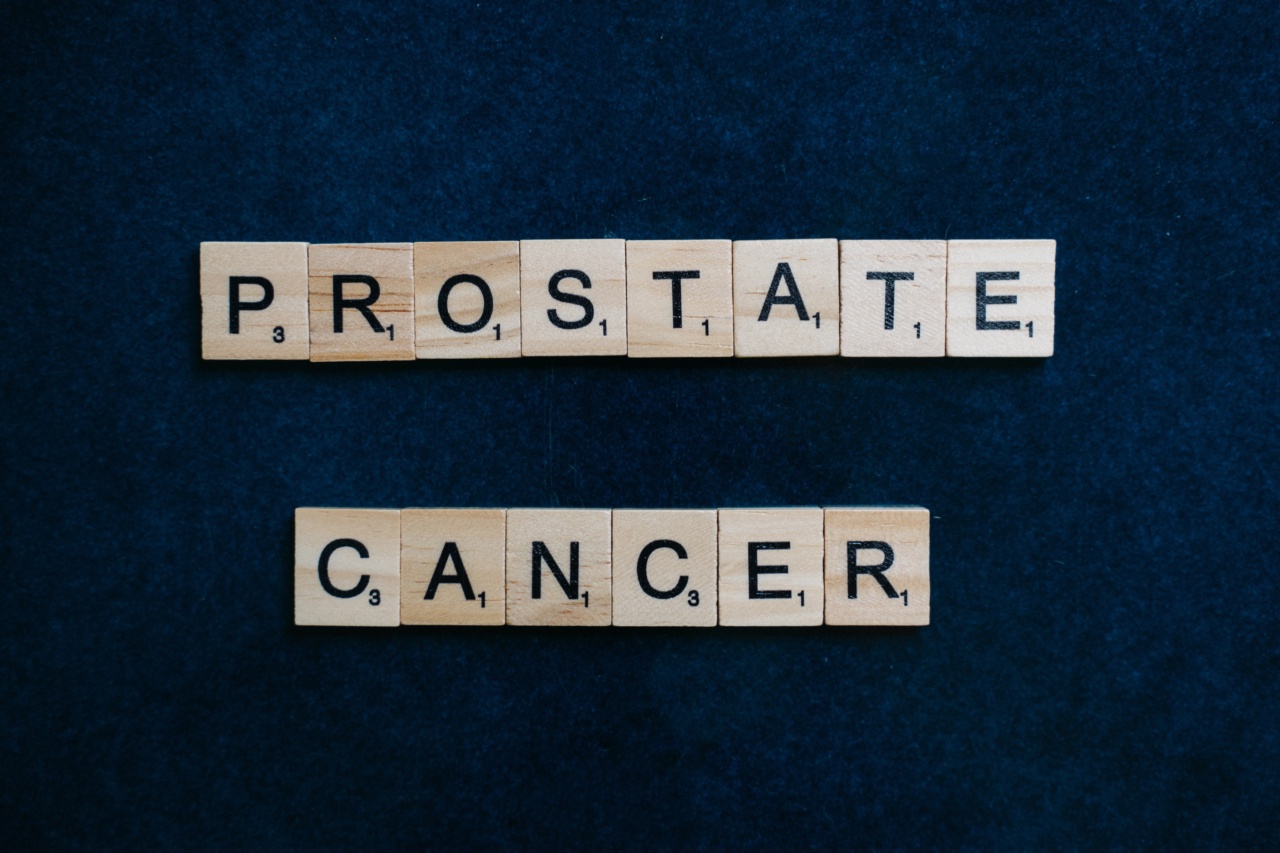Prostate cancer is a prevalent disease that affects millions of men worldwide. It is the second most common cancer in men, after skin cancer.
Numerous studies have been conducted to explore the possible risk factors and preventive measures for prostate cancer. Interestingly, some research suggests that ejaculating more frequently can lower the risk of developing this disease. In this article, we will delve into the science behind this claim and discuss the potential implications for men’s health.
Understanding Prostate Cancer
Before we delve into the link between ejaculation and prostate cancer, let’s first comprehend the basics of this disease. The prostate is a small gland located just below the bladder in men.
It plays a vital role in the reproductive system by producing seminal fluid, which nourishes and transports sperm.
Prostate cancer occurs when the cells in the prostate gland start to grow abnormally. Over time, these cancerous cells can multiply and form tumors. If left untreated, the cancer can spread to other parts of the body, leading to further complications.
Various factors can contribute to the development of prostate cancer, including age, family history, ethnicity, and certain genetic mutations.
However, recent studies have also proposed a potential role of sexual activity and ejaculation in influencing prostate cancer risk.
The Ejaculation-Prostate Cancer Hypothesis
Researchers have hypothesized that frequent ejaculation may reduce the risk of prostate cancer by flushing out potentially harmful substances from the prostate gland.
According to this theory, regular ejaculation may help in the elimination of carcinogens, toxins, and old or damaged cells from the prostate, thus decreasing the chances of malignant growth.
Several studies have investigated this hypothesis, and the results have been intriguing. A large-scale study conducted in 2004 examined the sexual habits of over 30,000 men.
The research found that those who ejaculated more frequently (at least 21 times per month) had a significantly lower risk of prostate cancer compared to men who ejaculated less frequently (four to seven times per month).
Similarly, a study published in the Journal of the American Medical Association in 2016 suggested that men who ejaculated more frequently in their 20s had a decreased risk of prostate cancer later in life.
The researchers analyzed the medical records of nearly 32,000 men and identified a correlation between higher ejaculation frequency during early adulthood and reduced prostate cancer risk in later years.
The Role of Testosterone
Testosterone, the primary male sex hormone, plays a crucial role in prostate function and health. Researchers believe that regular ejaculation may influence testosterone levels, which, in turn, might impact prostate cancer risk.
One theory suggests that frequent ejaculation leads to a temporary decrease in testosterone levels, signaling the body to produce more testosterone.
This hormonal fluctuation may have a beneficial effect on the prostate gland, preventing the accumulation of abnormal cells that could potentially become cancerous.
Furthermore, elevated testosterone levels are associated with an increased risk of certain health conditions, such as benign prostatic hyperplasia (BPH) – a non-cancerous enlargement of the prostate gland.
By ejaculating more frequently, men may help maintain a healthier balance of testosterone, potentially reducing the likelihood of both BPH and prostate cancer.
Additional Potential Benefits of Regular Ejaculation
Aside from its potential association with reduced prostate cancer risk, regular ejaculation offers various other benefits for men’s health and well-being. Here are some notable advantages:.
1. Improved Sexual Function
Regular ejaculation helps keep the male reproductive system running smoothly. It can enhance sexual performance, reduce the risk of erectile dysfunction, and improve overall sexual satisfaction.
2. Stress Relief
Engaging in sexual activity and reaching orgasm releases endorphins and promotes relaxation, helping to alleviate stress and improve mood. Ejaculation acts as a natural stress reliever and can contribute to a better quality of life.
3. Better Sleep Quality
Ejaculation triggers the release of prolactin, a hormone that promotes feelings of relaxation and drowsiness. Thus, it can aid in falling asleep faster and improving the quality of sleep.
4. Prostate Health Maintenance
Regular ejaculation may assist in maintaining overall prostate health through the elimination of toxins, bacteria, and potentially harmful substances that could otherwise accumulate in the gland.
5. Enhanced Circulation
Sexual activity raises heart rate and increases blood flow throughout the body. This improved circulation brings essential nutrients and oxygen to various organs, including the prostate, which can benefit its health.
The Recommended Frequency of Ejaculation
While the idea of reducing prostate cancer risk through ejaculation is intriguing, there is no established consensus on the exact frequency required.
Nonetheless, it is generally believed that regular ejaculations, preferably from sexual intercourse or masturbation, are beneficial for prostate health.
Individual preferences and circumstances play a significant role in determining the suitable frequency of sexual activity for men.
It is important to note that excessive ejaculation or unhealthy sexual practices can lead to physical and psychological issues. Striving for a balanced and fulfilling sexual lifestyle is key to reaping the potential benefits discussed in this article.
Conclusion
While further research is needed to solidify the link between ejaculation and prostate cancer risk, the existing evidence suggests a potential protective effect.
Frequent ejaculation may indeed be associated with a decreased risk of developing prostate cancer. Additionally, it offers several other health benefits, including improved sexual function, stress relief, and better sleep quality.
It is essential for men to be proactive about their prostate health by maintaining a healthy lifestyle, regularly visiting their healthcare providers, and being aware of any potential symptoms or risk factors associated with prostate cancer.
Consultation with a healthcare professional is advised for personalized advice regarding sexual health and the prevention of prostate cancer.





























